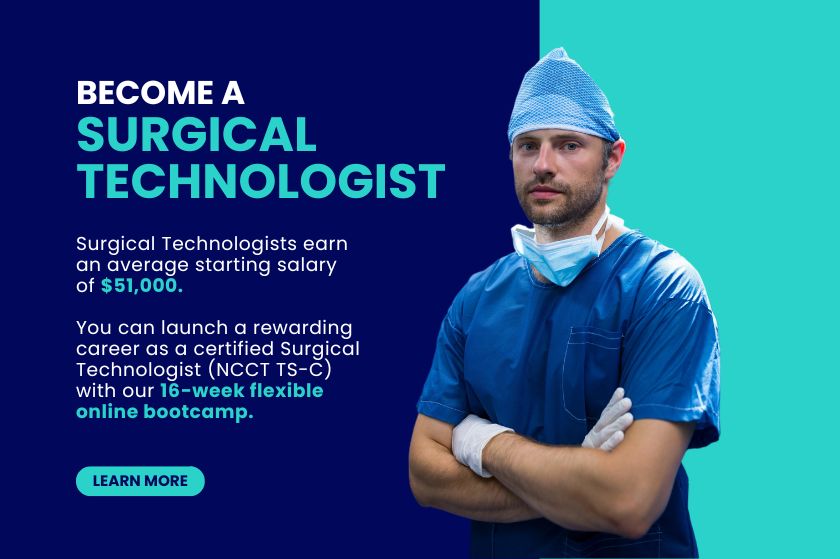Taking the Certified Surgical Technologist (CST) exam is a pivotal step for anyone looking to establish a career in surgical technology. This credential, offered by the National Board of Surgical Technology and Surgical Assisting (NBSTSA), is recognized across the United States and is often a requirement for employment in many healthcare facilities. The exam assesses your knowledge, skills, and abilities necessary to function competently as a surgical technologist, making your preparation for it crucial to your professional success.
Understanding the format, content, and expectations of the CST exam is essential for effective preparation and eventual success. Whether you're a recent graduate from a surgical tech program or an experienced technologist looking to formalize your expertise, passing the CST exam can open doors to advanced career opportunities and increased credibility in the field. In this blog, we’ll explore five key aspects you need to know to effectively prepare and pass the CST exam.
1. Understanding the Exam Structure and Content
The CST exam is comprehensive, designed to test a candidate's theoretical and practical knowledge in surgical technology. It comprises approximately 200 multiple-choice questions, covering a wide range of topics relevant to the surgical environment. Topics include but are not limited to, preoperative preparation, intraoperative procedures, postoperative procedures, and additional duties like sterilization and maintenance of equipment.
It’s important to familiarize yourself with the weight each topic holds in the exam. This understanding will help you prioritize your study efforts accordingly. Resources such as the NBSTSA’s exam outline and practice tests can be invaluable in this respect, offering insight into the types of questions you may face and the best strategies to tackle them.
2. Effective Study Strategies
Preparing for the CST exam requires a structured and strategic approach. It is advisable to start studying several months in advance, allowing ample time to cover all necessary material without rushing. Creating a study schedule that breaks down all the exam topics into manageable sections can help maintain a steady pace and reduce last-minute cramming.
Employ various study methods to cater to different learning styles. For instance, visual learners can benefit from diagrams and flowcharts, whereas auditory learners might prefer educational videos or group study sessions. Additionally, regular practice tests not only assess your knowledge but also help reduce anxiety by familiarizing you with the format and time constraints of the actual exam.
3. Practical Experience and Application
While theoretical knowledge is crucial for passing the CST exam, practical skills are equally important. Hands-on experience gained during clinical rotations or in a working environment provides a practical understanding that enhances learning and retention. It is essential to apply theoretical knowledge in a real-world setting to fully grasp the intricacies of the role of a surgical technologist.
Consider volunteering or part-time work in surgical settings if you are not currently employed in one. This exposure not only boosts your resume but also gives you practical insights and a better understanding of surgical procedures and the operating room environment, all of which are beneficial when taking the CST exam.
4. Stress Management and Test-Taking Techniques
The prospect of taking a comprehensive exam like the CST can be daunting. Effective stress management techniques are crucial to maintain focus and optimize performance during your preparation and on exam day. Techniques such as deep breathing, regular physical activity, and adequate sleep are vital in keeping anxiety at bay.
Furthermore, mastering test-taking strategies can greatly enhance your performance. These include reading questions carefully, managing time efficiently during the exam, and knowing how to logically eliminate incorrect answer choices. Attending review courses or workshops can also provide valuable tips and reinforce your knowledge.
5. Networking and Professional Guidance
Engaging with fellow candidates and professionals already in the field can provide support and valuable insights. Networking can be done through online forums, study groups, and professional associations, which often offer resources such as study materials, workshops, and seminars. Experienced professionals can offer advice, moral support, and sometimes even study tips that are not widely known.
Additionally, mentors or educators who are familiar with the CST exam can offer guidance tailored to your personal study needs and strengths. They can help identify areas where you need improvement, suggest resources, and provide encouragement throughout your preparation process.
Pursue a Future in Surgical Technology Today
Passing the CST exam is a significant achievement for any surgical technologist, opening up numerous opportunities for career advancement and professional growth. By understanding the exam structure, implementing effective study strategies, gaining practical experience, managing stress, and leveraging professional networks, you can enhance your chances of success.

If you are aspiring to become a surgical technologist technician, consider enrolling in an accelerated surgical technologist bootcamp program. Health Tech Academy is an industry leader in surgical technologist education, offering comprehensive and accelerated surgical technologist technician bootcamp programs that prepare students for future careers in surgical technology. Their state-of-the-art training facilities and experienced faculty are dedicated to ensuring that you are well-prepared not only to pass the CST exam but also to excel in your future career. For more information, visit Health Tech Academy’s website and take your first step towards a successful career in surgical technology.


